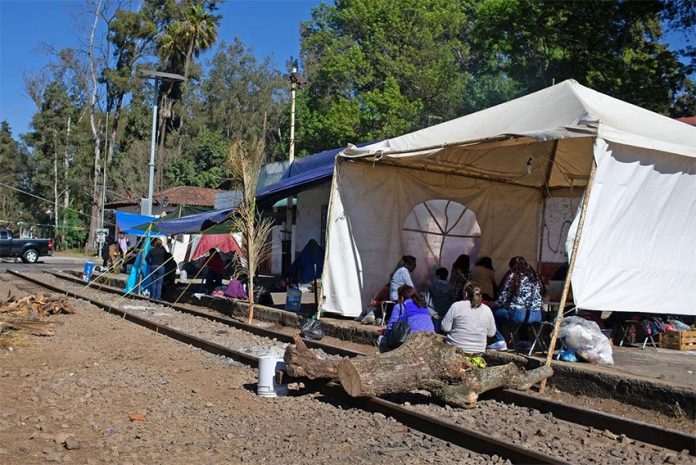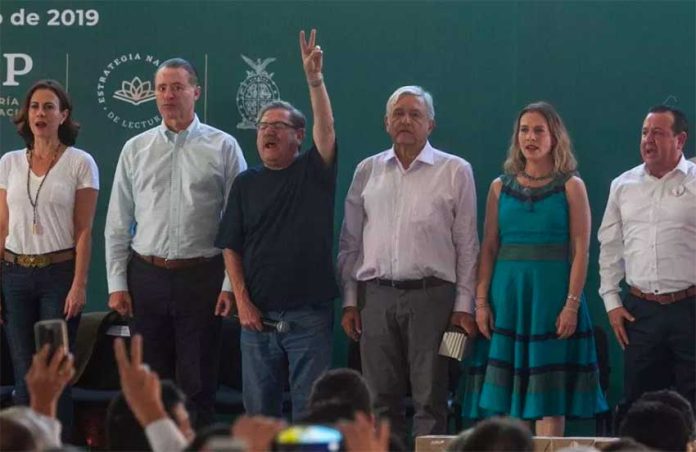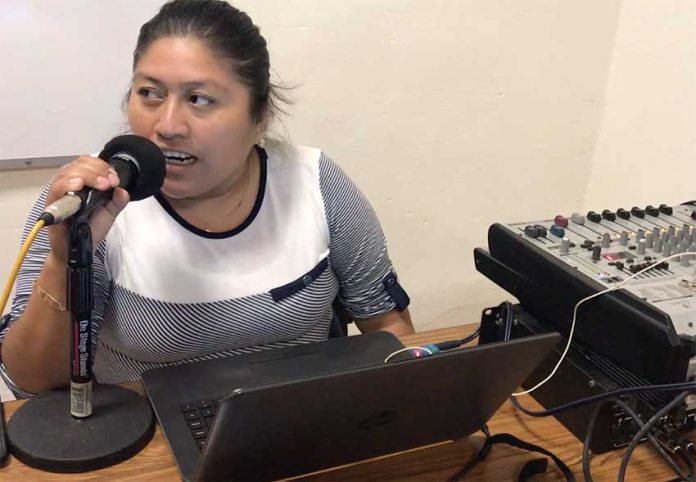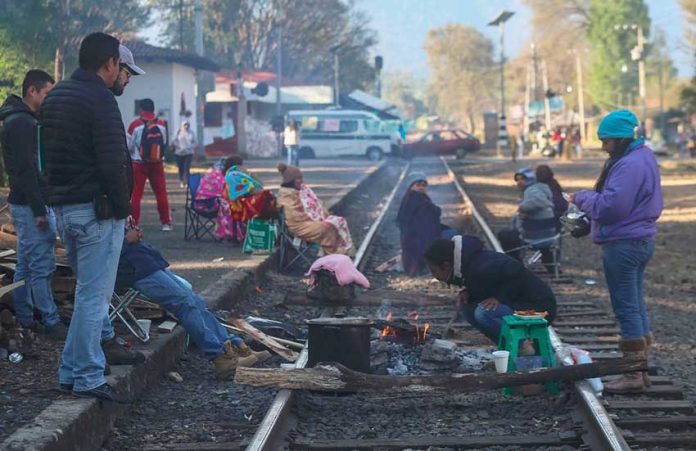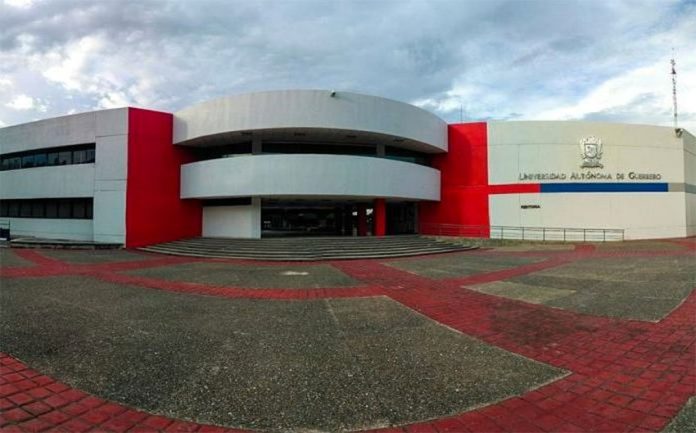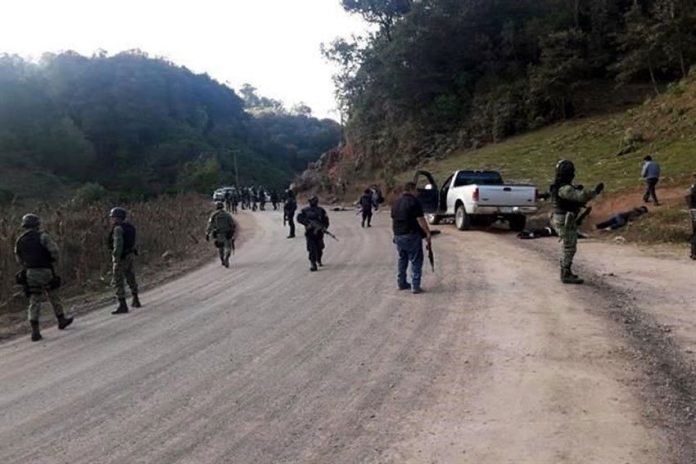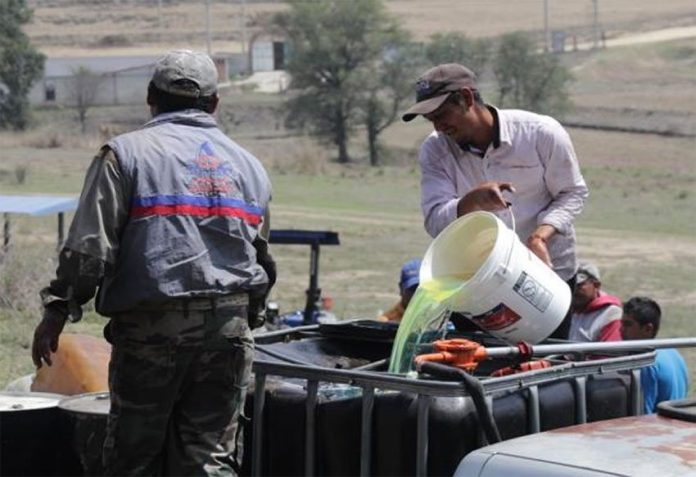Teachers in Michoacán have threatened to escalate their protest by barricading banks, shopping centers and highway toll booths if their demands are not met by the state government.
Isidoro Castañeda, a regional coordinator of the CNTE teachers’ union, said today is the deadline for the state to meet the teachers’ demands, which include 5 billion pesos (US $263 million) to pay salaries, benefits and bonuses they say they are owed.
Castañeda said that teachers will decide at a meeting today whether to begin the new protests immediately in addition to maintaining rail blockades, which have now been in place for more than two weeks and are costing the economy an estimated 1 billion pesos (US $52.5 million) a day.
The federal government has provided an additional 1 billion pesos to the Michoacán government to pay teachers but Governor Silvano Aureoles said yesterday that no new payments will be made and no further dialogue will take place with the union unless the teachers end their blockades.
Aureoles met with federal Education Secretary Esteban Moctezuma Barragán in Morelia yesterday and later said in a statement that they had agreed to work together to solve the conflict.
The governor said that officials from his government and the Secretariat of Public Education (SEP) would meet today to review the teachers’ demands but stressed that they would not be met before the blockade is lifted.
“There is no reason for teachers to still be in the streets. The state and federal governments are willing to work [together] on the path agreed to with the secretary of education, provided the teachers clear the tracks so as not to continue affecting the economy and society in general,” Aureoles said.
With the federal government ruling out any possibility that force will be used to remove the teachers from the tracks, the standoff looks likely to continue.
“We have several demands . . . We’re asking for all of the demands [to be met] in order for the blockade to be lifted,” CNTE Section 18 spokesman Saturnino Pineda said.
Despite the federal government’s involvement in negotiations, President López Obrador reiterated today that it was ultimately up to the state government to solve the conflict and charged that Aureoles has failed to do so because he was on a working trip to Europe when the blockades began.
“The [teachers’] demands are not up to the federal government to resolve, it’s a matter of non-payment to state teachers, it’s the responsibility of the state government. At the same time, the governor goes on a working trip to Europe; he didn’t attend to the problem,” he said.
“To avoid damages, we decided to transfer federal funds . . . so that the [state] government would have sufficient budget [to pay teachers]. We already did that, the funds have already been transferred,” López Obrador added.
In addition to causing economic losses in Mexico, the teachers’ rail blockades are generating a negative image of the country abroad, according to the Mexican Association of Shipping Agents (AMANAC).
Association vice-president Norma Becerra said “there are now complaints from freight forwarders on the other side of the world” about delivery delays caused by the blockades.
“They ask us why we haven’t delivered freight to their consignees and we explain that it’s because we have railway blockades.”
Mexican industries are asking authorities to clear the tracks promptly amid fears that it could cause a shortage of supplies for sectors such as steel and automotive, among others.
“Up to today [Monday], 251 trains have been affected . . . 2.1 million tonnes of freight haven’t been transported,” Becerra said.
She explained that trucks have been sent to Lázaro Cárdenas, Michoacán, and Manzanillo, Colima, to move imported goods but stressed that they don’t have the capacity to move all the cargo that continues to arrive and accumulate at the ports.
There is a possibility, Becerra said, that foreign ships will choose to go to ports in other countries and transport cargo to Mexico at a later date, which would significantly increase supply chain costs.
She also said that Mexican companies that export products such as beer, ceramics and white goods are incurring losses because they can’t get their goods to port.
“Exports are very important for the GDP of our country. Just in Mexico City and México state, in the Valley of México railway station, 720 containers are [normally] moved every day but they haven’t been able to leave,” Becerra said.
Juan Pablo Castañón, president of the Business Coordinating Council (CCE), said the time has come for the federal government to act to clear the tracks, stating “we cannot allow strategic [transportation] routes such as railway tracks to be subject to political extortion by minority groups.”
Gustavo de Hoyos, president of the Mexican Employers Federation (Coparmex), urged the federal government to apply the rule of law and put an end to the blockades, although he emphasized that teachers’ human rights must be respected.
“Mexico’s economy requires the regular and safe operation of its trains. The complacency of today [in dealing] with the CNTE could be the disaster of the future . . .” he wrote on Twitter.
Meanwhile, public services in much of Michoacán have been paralyzed. Teachers have occupied 31 municipal headquarters and the offices of several state agencies. The union says its job action has suspended classes in 90% of the state’s schools.
Source: Milenio (sp), El Universal (sp), El Economista (sp), La Razón (sp)
